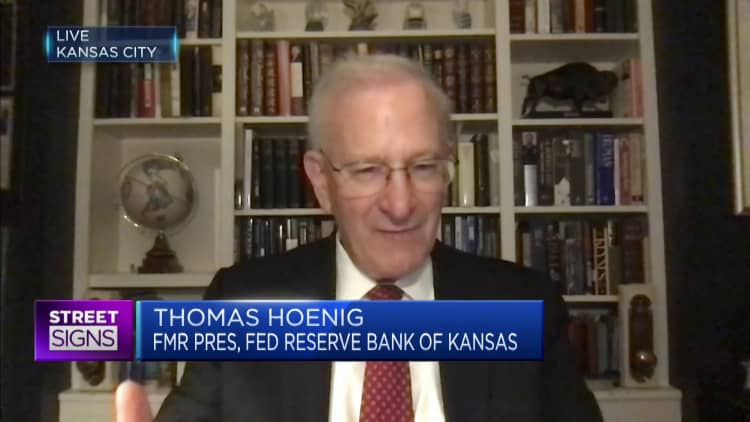Shares in the Asia-Pacific fell on Friday ahead of the monthly U.S. jobs report, which is likely to guide the Federal Reserve's monetary decision in November.
Payrolls are expected to increase 275,000 in September, and unemployment is predicted to be steady at 3.7%, according to economists surveyed by Dow Jones.
Hong Kong's Hang Seng index lost 1.27% in the final hour of trade and the Hang Seng Tech index shed 2.96%. The Nikkei 225 in Japan fell 0.71% to 27,116.11 and the Topix index slipped 0.82% to 1,906.80. In Australia, the S&P/ASX 200 fell 0.8% to 6,762.80.
South Korea's Kospi lost 0.22% to 2,232.84 while the Kosdaq dropped 1.07% to 698.49. MSCI's broadest index of Asia-Pacific shares outside Japan fell 1.29%. Markets in mainland China remain closed for a holiday.
Overnight in the U.S., major indexes fell — the Dow Jones Industrial Average shed 346.93 points, or 1.15%, to 29,926.94. The S&P 500 declined 1.02% to 3,744.52, while the Nasdaq Composite was 0.68% lower at 11,073.31.
"Equities struggled as markets await the much-anticipated U.S. payrolls data … and as comments from Fed officials maintained a 'more is needed' vibe," ANZ Research analysts wrote in a Friday note.


